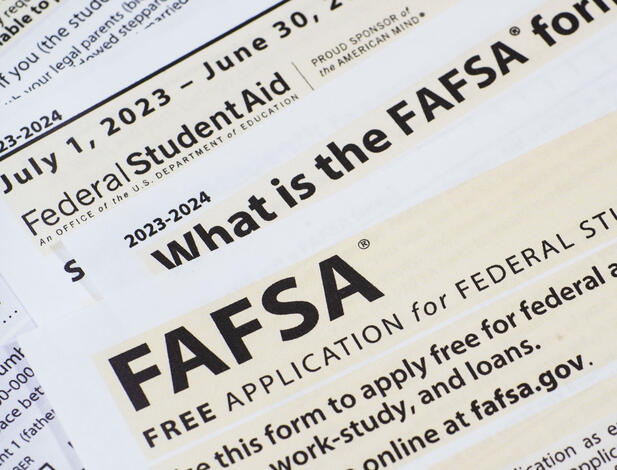Key FAFSA Changes
Below are the changes effective the 2024 - 2025 aid year. The 2025-2026 FAFSA was opened to all students on November 21, 2024. The 2026 - 2027 FAFSA was opened October 1, 2025.
Contributors, Consent and the IRS
- The FAFSA requires consent to access IRS information
- Consent is given by each contributor before signing the FAFSA
- Contributors include the student, student’s spouse, and may include a parent and/or parent’s spouse
- The FAFSA now uses the Federal Tax Information (FTI) to import IRS data
- This replaces the IRS Data Retrieval Tool (DRT) used in the past
Formula for Federal Student Aid Eligibility
- The Student Aid Index (SAI) is the measure of your financial need
- SAI replaces the Estimated Family Contribution (EFC)
- Assets, untaxed income and other factors affect the SAI differently than years prior
Pell Grant
- Pell Grant now awarded proportionally based on 1 – 12 credits enrollment
- Full-time, three-quarter time, half-time and less than half time enrollment statuses are no longer used
- Student whose prior school closed may have some Lifetime Eligibility Usage (LEU) restored
Dependent vs Independent Students
- Independent students typically do not provide parent information
- Students under 24 may answer FAFSA questions to show they are “Provisionally Independent”
- All appeals, forms and documentation must be completed to receive aid for each Provisionally Independent category:
- Unaccompanied Homeless/At-Risk Youth (UHY)
- Students who cannot live with a parent, and lack stable housing
- At-risk youth include students staying with a friend or non-parent relative
- Dependency Override
- Self-supporting students who wish to appeal based on unusual circumstances other than inadequate housing
- Parents refuse to complete the FAFSA
- Students who confirm a parent’s refusal may receive Unsubsidized Loans Only
- Unaccompanied Homeless/At-Risk Youth (UHY)
Other Changes
- FAFSA form available in 11 most common languages
- Selective Service registration no longer affects the FAFSA
- Drug convictions no longer affect the FAFSA
What Is Not Changing?
These federal aid requirements, rights, and responsibilities have not changed or have had only minor updates:
- The FAFSA remains required annually for federal aid consideration and is available to U.S. Citizens or Eligible Non-Citizens.
- Questions about the applicant's gender, race, and ethnicity have no effect on federal student aid eligibility and remain only for statistical purposes.
- Dependency status questions to determine if your parents must provide their information remain the same.
- FAFSA will still request tax information from two years ago. Families that had significant reduction in income due to extenuating circumstances can still request special circumstances review.
- Federal Education Loans requirements remain the same.
- Federal Aid Rights & Responsibilities also didn't change.
- Satisfactory Academic Progress Requirements for Federal Aid are still required to maintain eligibility.
0

